I’m Autistic, and I Had Sex Because I Thought I Was Supposed To
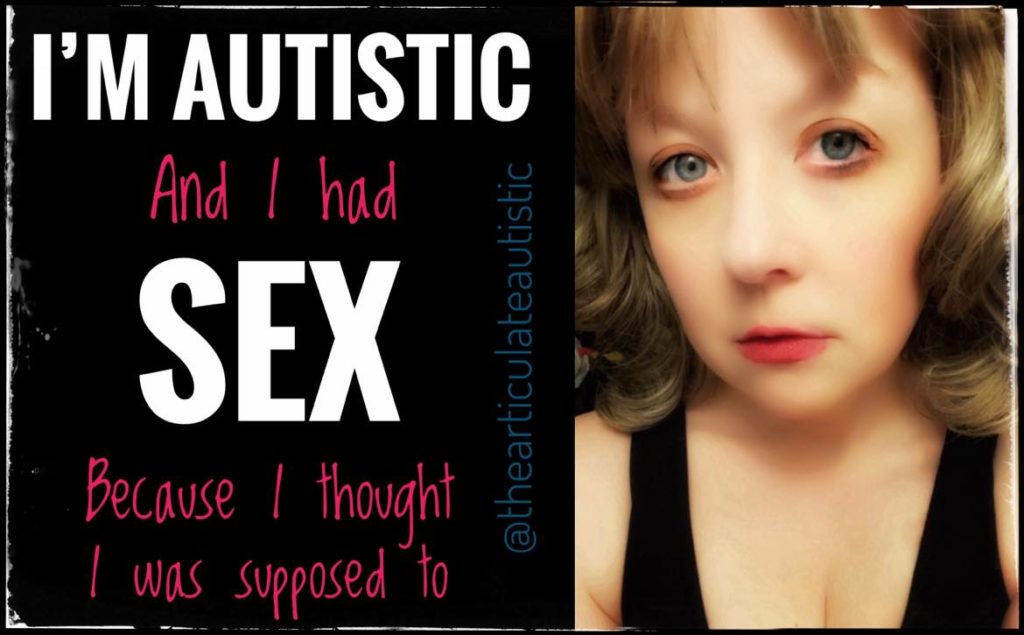
In order to survive in a neurotypical world not made for me, I, like many autistic people, did (and still do) a lot of masking. If you’re unfamiliar with the term, masking is when an autistic person suppresses their natural autistic traits and mimics the facial expressions, tone, body language, and interests of the neurotypical people around them.
We don’t do this to fool others, but as an act of self-preservation, as many of us learned very early on in life that not only were our natural autistic traits unacceptable, they could result in us being abused.
So, what does this have to do with sex?
A lot!
There’s Only So Much Neurotypical Behavior You’re Allowed to Observe
Here’s the thing, masking requires intense and continuous study of those around us. It’s how we emulate neurotypical behavior in order to remain as safe and inconspicuous as we possibly can. This is fine if you’re observing the expected social mannerisms of a family get-together but not so convenient if you want to understand the intimate mating habits of a neurotypical couple.
Yes, there are “videos”, I know. They’re not my thing personally, but from what I understand of those types of videos, they’re meant to either educate or excite. That’s pretty much it. You either learn about blindfolds and candle wax to practice on a consenting partner, or you just watch it because it’s exciting.
Cool, if that’s the type of information you’d need as an autistic person to understand bedroom behavior.
But that’s not what we need to understand in order to effectively flirt, date, and read vitally important signals before anybody gets naked.
Rules Are Rules to Many Autistic People, No Matter What They’re About
Autistics are rule-bound people. Once we learn a social rule or any other type of rule, it’s the way it is. There’s no accounting for timing, different situations, feelings, social hierarchy, etc. That’s not how our brains work. Rules are rules.
I learned most of my emulated neurotypical social behavior through watching television and movies. It took me a very long time (I was in my early 30s) to really grasp that just because somebody did something socially in a TV show or movie didn’t mean that’s how it translated exactly in real life.
I made a LOT of social mistakes through a combination of taking everything literally and socially scripting off of the dialogue, experiences, mannerisms, and facial expressions I saw on TV and in movies.
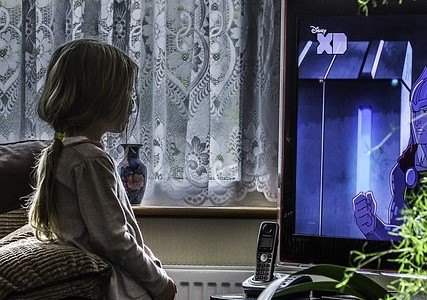
There are also a lot of social “rules” you see on TV and movies. A common one I picked up on is the “three-date rule”. How long are you supposed to wait before you have sex with someone you’re dating? Three dates. Yeah, three dates. That seems to be the prevailing “rule” in just about every sitcom and movie I’ve ever seen.
Here’s how my autistic mind thought dating and sex were supposed to go, exactly like this, in this order:
- Flirting
- Talking
- First date
- Kissing
- Second date
- Kissing and touching
- Third date
- Sex
And, to make matters even more comically tragic, I also thought the act of sex itself is supposed to go exactly like this every single time:
- Hot, passionate making out (kissing is how I know you want to fool around, otherwise, I’m lost) — I don’t get any other hints!
- On-top of clothes movements and removal of clothing
- Bedroom, nudity, sex
I mean, that’s how sex can go, but, if it didn’t go in this exact order, I didn’t know what was going on or even that someone was trying to have sex with me.
So, for example, if there was no kissing, but a lot of verbal flirting or flirting by facial expression, I didn’t reciprocate because, unless it all went in the “right” order, I didn’t even know the other person was interested in an encounter. (This caused a lot of hurt and confusion to partners in the past, which escalated into accusations and fights I didn’t understand.)
And, if there WAS hot, passionate kissing, and sex didn’t happen, then I was the one confused and hurt because I thought the person was purposefully getting me all riled up with no intention of doing anything about it!
Third Date “Rules” Don’t Cover Emotional Connection, Timing, Desire, Etc.
Back to the third date “rule” thing. If I had three dates with a person, I thought I was supposed to have sex with them. I never thought about emotional connection, passion, desire, timing, etc. Why? Because that stuff isn’t explicitly shown on TV or movies! Those critical pieces of information are missing, and, while it’s fine for people who watch TV for entertainment, it’s not fine for an autistic person who is literally learning all her life skills from watching these fictional social interactions!
Emotional connection? Passion? Actual desire to do the thing? Oh, wait. That was supposed to happen FIRST before I took my clothes off? Well, shit!
No wonder I never actually knew what sex was for! No wonder I just masked my way through sexual encounters with people I didn’t know well enough to be getting naked in front of! It all makes sense now…that I’m freaking 41!
Intimate Relationships Are Not Meant to Be Emulated
If you are a parent of an autistic child, don’t let them grow up with these ideas about sex and love in their heads, please.
Neurotypical people learn implicitly, but autistic people learn explicitly. This means that the things neurotypical people can learn simply by existing in the world and interacting with others, we can’t. Our brains don’t work that way. We need to be taught them, especially the social norms around dating and sex.
While everyday neurotypical social behaviors can be emulated, intimate relationships can not. They are too complicated. There are too many variables and unspoken expectations that nobody can learn by observation alone.
Please explicitly teach your autistic tweens, teens, and young adults about sex. I don’t mean the actual doing of it or the safety precautions involved regarding consent and protection, either. I mean the emotional and physical feelings that come before, during, and after these experiences and the differences between how people flirt, date, and have sex in TV and movies rather than how people do those things in real life.
How I Wish I Had Been Taught About Sex and Romantic Relationships
Notice I said how I wish I had been taught, not what. I was taught about sex and relationships through a traditional combination of anatomy books and health classes that taught about consent and safe-sex practices.
While it was enough information to know where everything went, it wasn’t nearly explicit enough for me to understand because it left out all of the social information.

Here are the questions I needed answered explicitly and in great detail:
- What is sex?
- Why do people have sex?
- How do I know when somebody wants to have sex with me?
- How do I know when I want to have sex with somebody?
- How do I indicate a desire for sex?
- What is consent? (Not just “Yes” or “No” but more detailed explanations like the social protocol for changing my mind or not wanting to go further than I already have.)
- How can I tell if a person wants to have sex with me out of desire or out of love?
- How can I tell when I want to have sex with a person out of desire or out of love?
- How do I know when someone is flirting with me?
- How do I flirt?
- What are some things I might be unknowingly doing or saying that are sending sexual messages that I have no intention of sending?*
- How do I tell if a person I’m interested in already has a partner (short of asking them)?
* This one is very important. I was often told as even a young child that I was doing “flirty” things, and I had no idea what people were talking about. Again, I emulated what I saw, so I copied social behaviors but didn’t always apply them to the correct people or situations because those things are not explicitly taught.
If you’re a neurotypical person with an autistic loved one, and you are staring at my list here in open-mouthed shock that I don’t know these things at my age, know that I STILL don’t fully understand these things. I understand a lot more now, but if I have questions like these as a middle-aged woman, then your autistic loved one might, as well, so please talk to them about this, and help them clear up the mystery before they ever have to experience the embarrassment, confusion, and disappointment I’ve had to deal with.
If I had sex because I thought I was supposed to, because that’s what I’d learned from TV and my peers, then, chances are, your autistic loved one may be doing the same thing.
**Trigger Warning – Sexual Assault**
In the next section, I’m going to go public for the first time with my story of being taken advantage of sexually because of my naivete. You don’t have to read that part if you find it triggering. Everything you need to know to help your autistic loved one better understand sex and relationships is already here, but if you’d like to read my story (which I didn’t even know I was going to write until I got started with this article), please do. It may help you because autistic people often experience this type of abuse due to our literalness, trusting nature, and scripting.
My Story of Sexual Assault
I moved out on my own at 17. I had no idea I was autistic at the time, but I had been diagnosed with ADHD. My atypical behavior had made me a target for both purposeful abuse and unintentional gaslighting most of my life, so when I graduated high school, I moved out immediately in an attempt to be alone and therefore safe.
I started working in a retail environment where the moment I had walked in the door to ask for a job, the proprietor had leered at me with barely-concealed and shark-like desire. I see that’s what it was now, but at 17, I just thought he had developed an instant crush on me or something. Funny thing is, I even remember what I was wearing that day: A pink turtleneck and an ankle-length flower-printed skirt (certainly not a sexy look by any means).
Anyway, I was desperate for a job because I was just about to move out, so I took it. The entire time I worked there, this man (who was about 33 at the time) flirted with me and told me inappropriate stories about his sex life. I also didn’t understand how to do my job, so he was constantly having to retrain me, which led to a bit of codependency between us. Eventually, he had to let me go because I just didn’t get it. (I would lose a LOT of jobs in my life due to being autistic and having learning disabilities, but that’s a topic for another article.)
Fast-forward to about a year-and-a-half later, and I ran into the proprietor again. This time, he was biking down my street, and it turned out, he lived very close to me. We started talking in a “catching up” sort of way, and he started flirting again.
Mind you, at this point in time, I had no idea that any of his past behavior would have been seen as predatory. I thought he just liked me. And, since he was still showing interest, and I was “of age” now (I was 19), I decided to give him a chance.
There was no thought to my very minimal (if any) attraction to him or the age difference. I think I was just flattered that I seemed to have such an effect on this man.
There were no dates, but I’d known him for a while (or so I thought), so we eventually ended up in my apartment making out on my couch. He tried to lead it directly to sex, but I wasn’t ready, and I stopped him.
He. Was. Livid.
Seriously, the switch that went off on his emotions was terrifying. I told him I wouldn’t go that far because we hadn’t even been talking for a night.
He left in a huff, and I wondered for a while what I had “done wrong”. I felt terrible. Had I led him on? Should I have explicitly said I’d make out but go no further? What was I supposed to do in this situation?
So, guess what? I felt bad that I had done “something wrong”, and I ended up going to his place a week later and having consensual sex with him. The entire time it happened, he looked at me like I was dirt beneath his shoe. He treated me that way, too.
I knew I had made a mistake because something didn’t feel right in my gut as I drove home that night, but I didn’t really understand what was happening. Having alexithymia (the inability to understand and process one’s own emotions and internal experiences), I didn’t know what my physical or emotional sensations meant in regards to this situation, so I couldn’t lean on them to guide me.
I wrote him a letter breaking it off with him immediately because it all felt so wrong to me, and he called me after he read the letter. He asked me to come over and see him so we could talk in person.
I did. I went over to his apartment in the middle of the night, and, when I walked in, there were no lights on in the living room or kitchen. All I could see was a faint glow from the bedroom where he was apparently lying down watching TV.

I was confused. Hadn’t he invited me over so we could end things in person? I ended up joining him in his bedroom because that’s where he was, and I saw that he was lying there without a shirt, leering at me again the same way he did when we first met. I finally figured out what he was after, but told him I wasn’t interested in anything sexual happening between us again.
I had no place to sit but on the bed as we talked, and he started touching my arms and legs, trying to coax me into bed with him. I kept pulling away and telling him no, but he wasn’t having it.
He started kissing me, and I gave in to the kiss at first out of confusion. Maybe he just wanted a goodbye kiss? But then, his hands were all over me, pulling my clothes off, I tried to resist and thought of running out the door, but I knew, I felt it in my bones, that he would physically hurt me if I did. I pulled away one more time in a last-ditch effort to get out of the situation I’d inadvertently gotten myself into, and he shoved me down on the bed and called me a “tease”.
His eyes were so predatory at that moment, and I knew this was either going to happen with me no longer resisting and just enduring it or trying to run for it and being violently assaulted. I chose option A, and, in a monotone and defeated voice I said, “Just use a condom.” Then, I just floated away in my mind as he got on top of me.
When I left that night, I went to bed and woke up having forgotten the incident completely. I didn’t know I was in shock and repressing the memory at the time. It wasn’t until 6 months later when a coworker told me her own story of sexual assault that it all came rushing back in vivid detail, and I broke down.
I called R.A.I.N.N. and told them about the incident. They said since I “gave in” under duress that it was still sexual assault. I never would have really understood that had it not been for that caring operator who answered the phone that day. Nevertheless, over 20 years later, the shame and self-blame for being so naive still creep up on me from time to time.
Here’s the thing, rape isn’t just being thrown into a back alley by a stranger and being forcibly taken at knifepoint. It can happen that way, but most of the time, it’s someone you know, someone you trusted.
And, we autistic people may accidentally put ourselves in situations where we won’t see even the most glaring red flags until it’s way too late.
I don’t want your child to be one of them, so please, educate them about sex in a way their unique brains can understand. The more they know about consensual dating, flirting, and sex, the more they understand about their own bodies, including their guts and intuition, the less of a chance they’ll have of being assaulted and taken advantage of and/or having confusing and disappointing romantic relationships.
Books for Better Understanding the Autistic Brain
(Whether you’re an autistic person who is newly diagnosed, or you have a loved one on the spectrum, the books below can help you better understand the autistic brain.)
Want downloadable, PDF-format copies of these blog posts to print and use with your loved ones or small class? Click here to become a Patreon supporter!


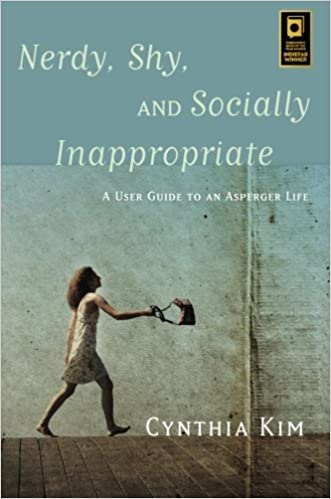

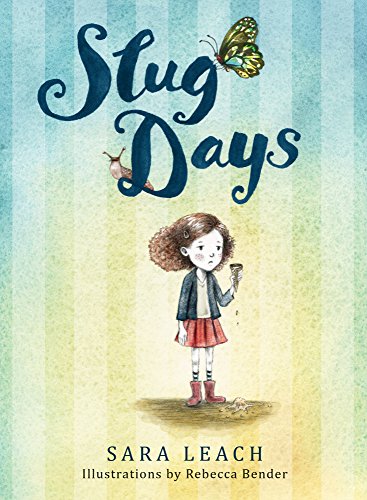
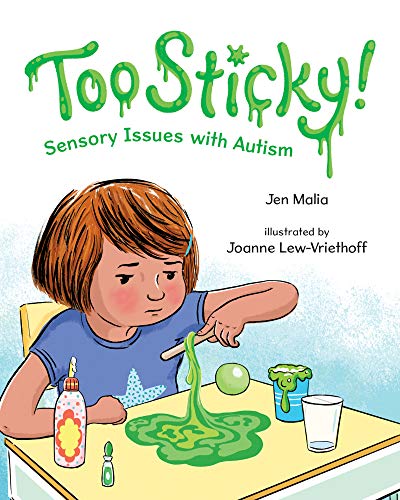
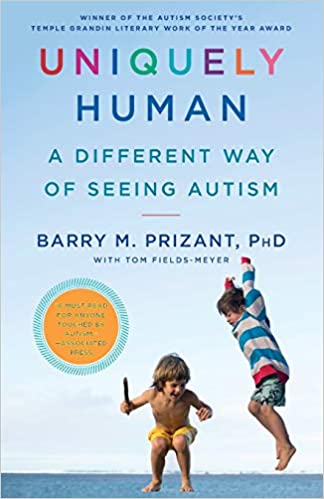




I really needed this . Thanks for this selfless act of sharing
You’re very welcome.
This was hard for me to read because I have just locked away all of my sexual memories and desires. Thankyou for sharing your experience.
You’re welcome. 🙂
I wish I had read this article 40 years ago, (apart from knowing I was autistic) it might have helped me avoid all too many dating disasters.
When I was a teen, it was very important to lose one’s virginity.
Thank you so much for sharing. I was diagnosed ADHD at 21 and when I learned what ADHD truly was I was amazed no one caught it sooner. Now I’m realizing just how much of the autistic experience I relate to and wondering why I wasn’t evaluated for it along with the ADHD given the extremely high rate of comorbidity and the huge overlap of characteristics, especially in females. I just found your blog today. I’ve only read two articles but I relate so much to everything you’ve shared. Thank you for sharing your experiences and your insights 🙂
You’re very welcome. 🙂